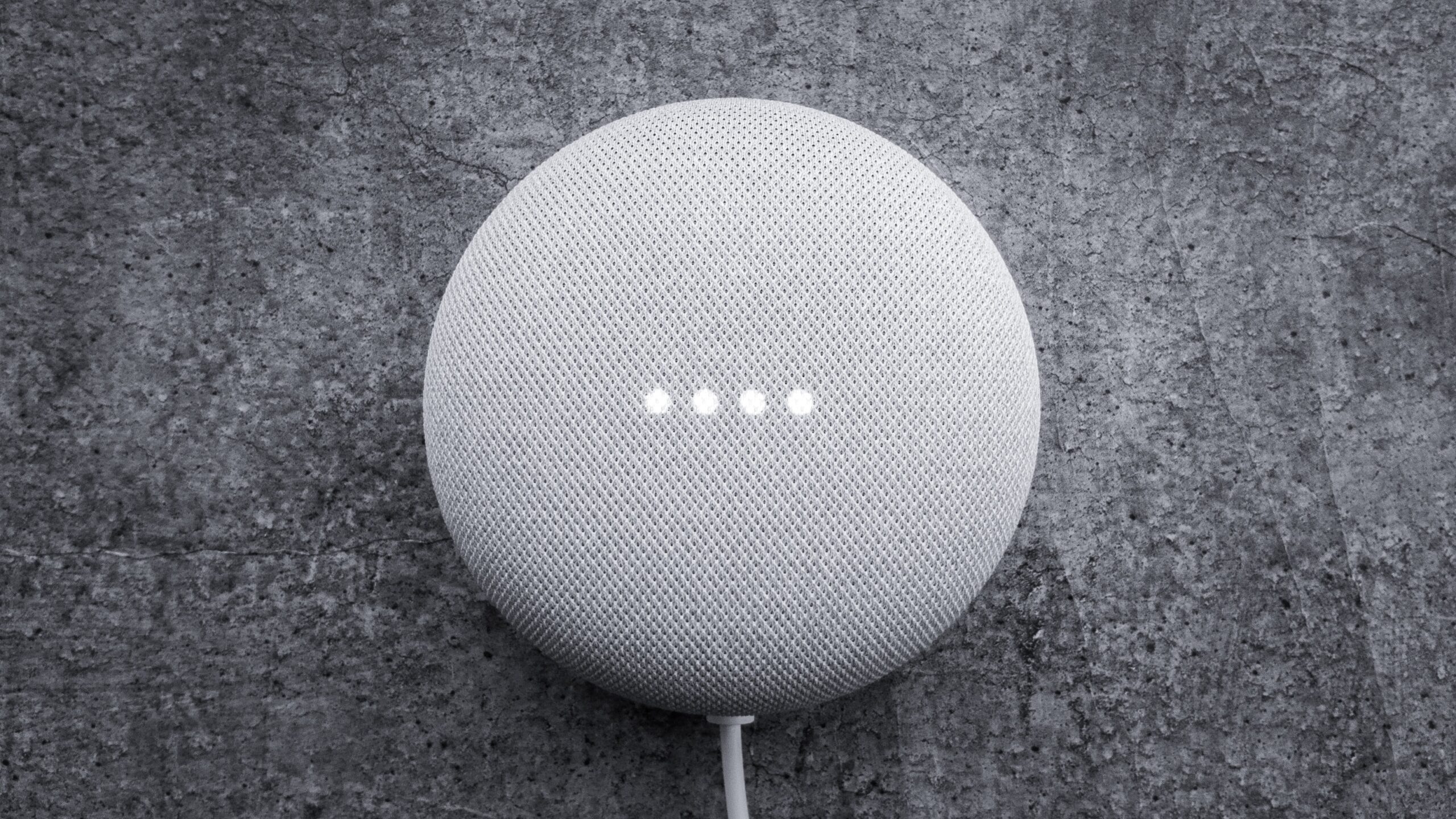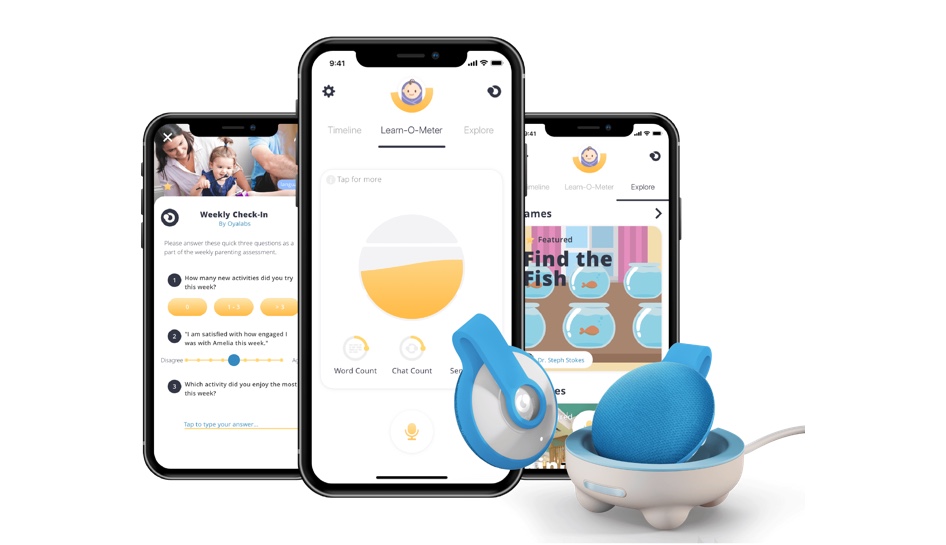
This is a sample of what’s covered in the HAX Hardware Review. Learn more about what’s happening in the world of connected hardware tech – download the full report here.
Voice technology is fast becoming a part of everyday life. Whether you’re one of the 40 million U.S. households with a voice-activated assistant, like an Amazon Echo or Google Home, or one of the millions of smartphone users that power Siri’s 2bn daily commands, voice is on a fast-track to becoming a primary way in which we interact with the technology and devices around us.
Why should you pay attention? As Forbes put it:
“We’re at a turning point. The next phase of computing is a complete paradigm shift in how humans interact with technology: It’s dropping the screen and integrating AI-driven voice technology. If you’re an investor, this is an incredibly exciting moment—these opportunities do not happen often, and the market has yet to grasp this disruption’s consequences.”
Forbes
And The Economist:
“This is a huge shift. Simple though it may seem, voice has the power to transform computing, by providing a natural means of interaction… Just as mobile phones were more than existing phones without wires, and cars were more than carriages without horses, so computers without screens and keyboards have the potential to be more useful, powerful and ubiquitous than people can imagine today.”
The Economist
Fertile Ground for Voice Tech Innovation
While voice has become a race for large tech companies, it’s also become a fertile development ground for startups.
The opportunity has not gone unnoticed, either. Amazon’s Alexa Fund is providing up to $100 million in venture capital funding to fuel voice technology innovation for developers, device-makers, and companies. Google also announced in May it’s bolstering its efforts to support voice-powered startups.
But here’s the thing: there’s more to voice tech than having the ability to call for information or ask Alexa to play a track on Spotify.
There’s greater value at the heart of AI and natural-language processing (NLP) that will ultimately unlock abilities to decode conversational language and enable more enriching experiences based on contextual understanding.
Clearly, small companies are not poised to compete with the likes of Alexa, Siri, Cortana, or Google Assistant, but they are starting to surface unique applications that expand the ways in which we interact with voice-based devices.
A few startups on our radar:

Speech as a Means for Cognitive Development
Oyalabs, Founded 2017, HAX startup
We look at a lot of NLP-based companies and were delighted when we met Oyalabs, a startup that applies IoT and mobile technology to the field of child development and health.
Rather than using speech to substitute typing, they use voice as a way to assess the quality of a child’s learning environment. Nested around a play area or nursery, their device monitors the sound environment and uses an NLP algorithm to analyze feedback for key development indicators.
This could be the number of words a child hears, how often they speak and how often they’re spoken to (all indicators that are proven to be critical for IQ and emotional development).
From there, Oto will make smart recommendations for simple activities, books or toys that are tailored to maximize their potential. Parents have full control over the monitoring feature with a simple on/off button and can event schedule it to be active only at a specific time of day. They can also share Oto analytical reports with a pediatrician or speech therapist.
In addition to helping parents, Oyalabs is also assisting researchers in the US, UK and Asia. Providing them with a remote solution to tracking parent-child interactions, versus being bound by home visits to collect data, researchers can plan studies with bigger sample sizes at lower cost.

The First Alexa-Powered Board Game
Sensible Object, Founded 2015, Alexa Fund
Voice Originals is a new series of voice-augmented games that combine tabletop and digital play to create a multimedia experience. When in Rome is the company’s first game, where two teams compete with each other in a race around the world, all guided by the Alexa in the room.
“The game itself consists of a board and a few colored pieces; the real magic comes from Alexa. You start the game by enabling the When in Rome skill, then you start the game. Alexa then prompts you with questions as you tool around the board. The rules are simple because Alexa does most of the work. The game describes how to set up the board and gets you started, then you just trigger it with your voice as you play.”
TechCrunch
When in Rome was recently made available on Amazon and is exclusively compatible with Alexa. Expansion to Google Assistant is expected in Q1 2019. In June, the company announced it raised $3.2mn to grow its experiences that combine Alexa with board games – more fun to come.

Connected Kids Toys & Entertainment
Toymail, Founded 2013, Alexa Fund
Toymail is a connected platform that entertains, educates, and connects parented with their kids remotely via a smartphone app and toy companion. The idea is to stay connected while upleveling play with physical toys, rather than screens and phones, at an early age.
How it works: you chat from your phone. They chat back from their toy. It’s a simple, creative way for staying connected and interacting with kids. There’s a full cast of Talkie characters to choose from, including Nunu the unicorn, Hank the dino, Boonut the bunny and more.

Story Time & Sound Effects App For Children’s Books
Novel Effect, Founded 2015, Alexa Fund
Novel Effect is voice-enabled story time. Syncing theme music and sound effects by reading a kids’ book aloud, it leverages voice recognition technology to create a new kind of storytelling experience.
The company has seen more than 50,000 downloads, with about 10,000 active monthly users. In May, the company announced it raised a $3mn series A round.
The Potential for AI-Driven Voice-Based Tech is Changing the Game
Given the movement seen in voice thus far, it’s certain there will be plenty more to come on the startup innovation front. And it will reshape how we interact with and consumer information in the world around us.
Developing a voice-based AI tech like this with a hardware element? What are you waiting for? Apply to HAX today.
This is a sample of what was covered in the HAX Hardware Review. It is one of many areas we see a solid future in. For more information – and a look at other areas we invest in – download a full copy of the report here.
